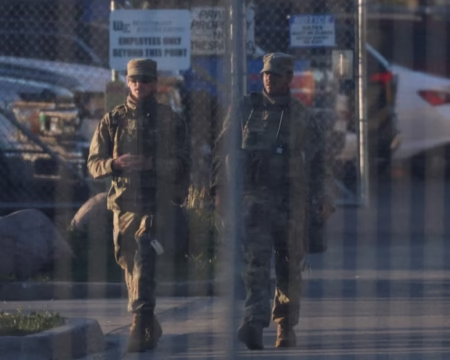China and the United States have agreed to extend the pause on tariffs after two days of trade talks in Stockholm. The talks ended midday Tuesday, as both sides looked to ease their ongoing trade dispute, according to Chinese Vice-Minister of Commerce Li Chenggang.
Li did not specify the exact length of the extension during his comments. However, US President Donald Trump, who was visiting Scotland, said the pause would last 90 days.
“According to the consensus between China and the US, both sides will continue to push for the continued extension of the pause on the 24 percent part of the reciprocal tariffs on the US side as well as the countermeasures on the Chinese side,” Trump said after the talks.
This extension comes after an initial agreement in May, where China and the US paused tariff increases for 90 days. The tariffs had previously been set at very high levels, with the US imposing 30 percent tariffs on Chinese goods and China charging 10 percent on US products. These rates remain in place for now.
The new agreement was reached just before the August 12 deadline, when the original tariff pause was set to expire.
Reports indicate that both China and the US were satisfied with the terms outlined in earlier talks held in Geneva and London. Li described the Stockholm discussions as “in-depth, candid, and constructive.”
The meetings in Stockholm were led by China’s Vice-Premier He Lifeng and US Treasury Secretary Scott Bessent. Their goal was to reduce tensions in the trade conflict between the world’s two biggest economies.
The talks focused on finding common ground to avoid further tariff increases and improve trade relations. Both sides showed willingness to continue dialogue and work toward resolving key issues.
Extending the tariff pause is seen as a positive step in preventing a further escalation of the trade war. It provides more time for both countries to negotiate and possibly reach a long-term trade agreement.
The ongoing trade dispute has affected global markets and created uncertainty for businesses and investors worldwide. The tariff extension may help stabilize economic conditions and encourage cooperation.
Both nations remain cautious but optimistic that continued talks will lead to a better understanding and fair trade practices.







